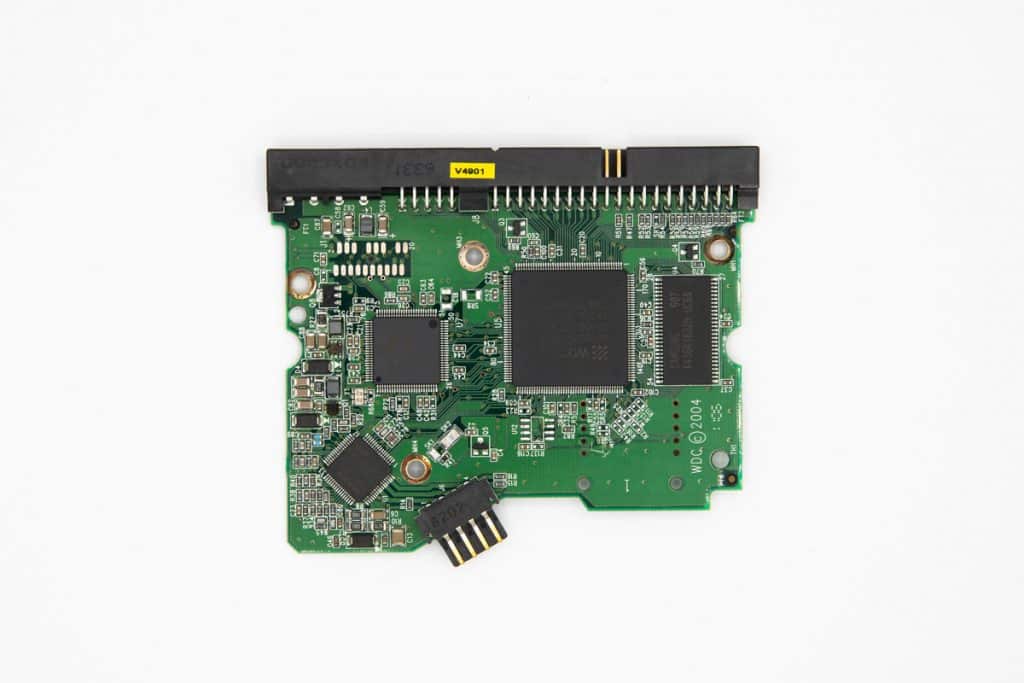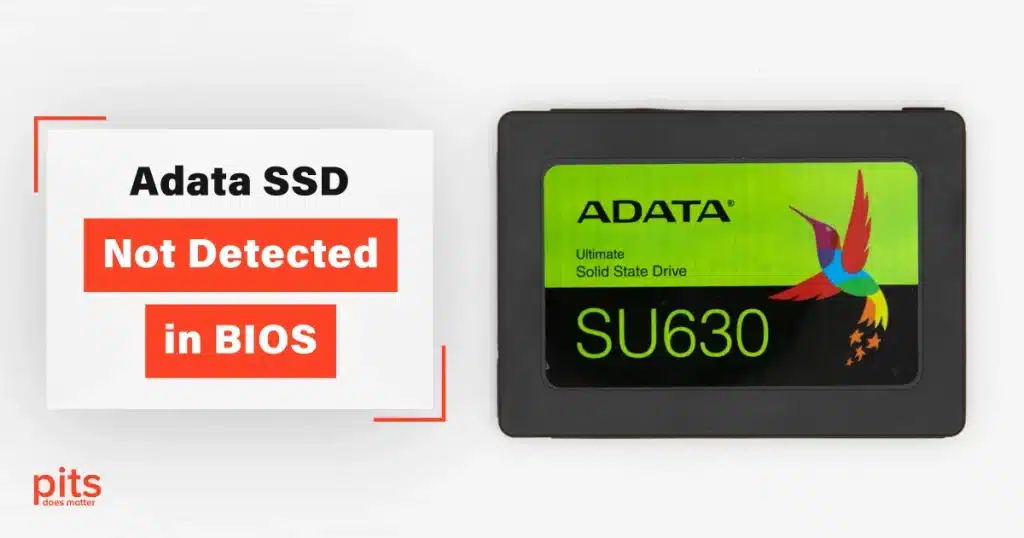Data loss can be a nightmare, especially when it comes to personal or business data. Recently, a client contacted our data recovery services after facing an issue with his Adata SSD drive. His SSD was not detected in the system, which led to the loss of important data. The client found our company through a recommendation and reached out to us for help.
Adata SSD Not Detected in BIOS: Evaluation
Our engineers quickly took over the task and performed an evaluation to determine the cause of the inaccessibility of the drive. They found that the SSD partition was missing, and the unallocated space on the device was not showing up in Windows. Moreover, the SSD driver was not updated, causing a driver issue.
As soon as the recovery process was finalized, we provided the report with approximate timing and price information. Based on this report, our customer made a decision to continue his data recovery process with us. Therefore, our engineers initiated the data recovery using advanced tools to retrieve lost files.
Adata SSD Data Recovery Process
To fix the solid-state drive not showing up in Windows, our engineers opened Disk Management, which allowed them to initialize the SSD. The initialize disk option was used to allocate the unallocated space on the drive, and the drive letters and paths were selected to change the drive letter. Additionally, the device manager was checked to update the SSD driver to resolve the driver issue.
Our engineers do not stand in one place and always develop. They regularly attend qualification courses and obtain certificates to keep up with the times. This way, we guarantee that we can deal with any data loss scenario, regardless of the type of device, brand, and storage capacity.
After carefully performing the data recovery process, our engineers scheduled a verification session for our client to check all the recovered data before sending it back to him. Our client was relieved to find that all his data had been successfully retrieved and was impressed with our prompt and efficient services.

Data loss can happen to anyone at any time, and it can be a stressful experience. However, it is important to remember that our Adata data recovery services can help recover lost data. In this successful case, our engineers were able to recover data from an Adata SSD that was not showing up in Windows.
By carefully performing an evaluation and utilizing advanced tools and techniques, we were able to retrieve all the lost data. Our client was satisfied with our services, and we were happy to provide a secure and confidential data recovery experience.
Why Choose Our Data Recovery Services
PITS Global Data Recovery Services has several advantages: fast turnaround time, experienced engineers, advanced tools and techniques, and secure and confidential data handling. Our services are compatible with all operating systems and data storage devices.
At our company, we realize the importance of data and the potential loss it can cause. Therefore, we prioritize our clients and their data by providing timely and efficient services. Our team of experienced engineers ensures that they stay up-to-date with the latest tools and techniques in data recovery. This allows us to deliver a comprehensive and effective data recovery solution.
Our data recovery services are not limited to solid-state drives (SSD) but are also compatible with other storage devices such as hard drives, RAID arrays, memory cards, and USB flash drives. We are equipped to handle various data loss scenarios such as accidental deletion, virus attacks, physical damage, and file corruption.






Data loss can happen to anyone, and it is important to take immediate action to recover your data. Our company provides fast, secure, and confidential professional data recovery services. We ensure that our customers receive the best possible services and prioritize their satisfaction. Our secure data recovery process and flexible options make our services accessible to everyone.
If you have lost your data, do not hesitate to contact us for a reliable and efficient data recovery solution. Our highly-skilled engineers will gladly assist you in your data recovery process. Get in touch with our recovery team by filling in the form below.
Frequently Asked Questions
Why is my SSD not being recognized by my computer?
There are several reasons why an SSD may not be recognized by a computer. It could be due to a loose connection or faulty cable, incorrect BIOS settings, outdated or incompatible drivers, or even a hardware failure in the SSD itself. Troubleshooting the issue step by step can help determine the specific cause.
How can I troubleshoot an SSD that is not being recognized?
Start by checking the physical connections between the SSD and the computer. Ensure that the SATA or PCIe cables are securely attached on both ends. If the connections are fine, access the BIOS settings and verify that the SSD is listed as a recognized device. If it is not, try updating the motherboard’s firmware and SSD drivers. If the problem persists, consider testing the SSD on a different computer or consulting a professional data recovery service.
Can I recover data from an SSD that is not recognized?
Yes, it is often possible to recover data from an SSD that is not recognized by the computer. There could be issues with the connection, firmware, or file system that prevent the SSD from being recognized. Professional data recovery services have specialized tools and expertise to diagnose and recover data from such situations. They can also assess the SSD for any hardware failures and perform necessary repairs or replacements.
Can I recover data from a physically damaged SSD that is not recognized?
In some cases, data recovery from a physically damaged SSD that is not recognized can be challenging. If the SSD has suffered from physical damage, such as a broken controller or NAND chip, it may require professional assistance from a data recovery service with expertise in SSD recovery. They have specialized tools and cleanroom facilities to handle delicate SSD components and perform advanced recovery techniques.
Are there any DIY methods to recover data from an unrecognized SSD?
There are a few DIY methods you can try, although they may not guarantee success and can potentially cause further damage. These include checking the connections, using a different cable or port, updating firmware and drivers, and using data recovery software designed for SSDs. However, it’s important to exercise caution and consider seeking professional help if the data is crucial or if you are unsure about performing these steps yourself.
What should I do before attempting data recovery on an unrecognized SSD?
Before attempting any data recovery on an unrecognized SSD, it is crucial to create a backup image or clone of the SSD if possible. This ensures that you have a copy of the data in case any recovery attempts cause further damage or data loss. It is also advisable to consult with a professional data recovery service to get expert guidance on the best approach for your specific situation.
How can I prevent data loss in the future?
To prevent data loss in the future, it is important to regularly back up your data to an external storage device or cloud backup service. This way, even if your SSD fails or becomes unrecognized, you will still have a copy of your important files. Additionally, maintaining the health of your SSD by keeping it updated with firmware, avoiding physical damage, and using reliable power sources can help prevent unexpected failures.
